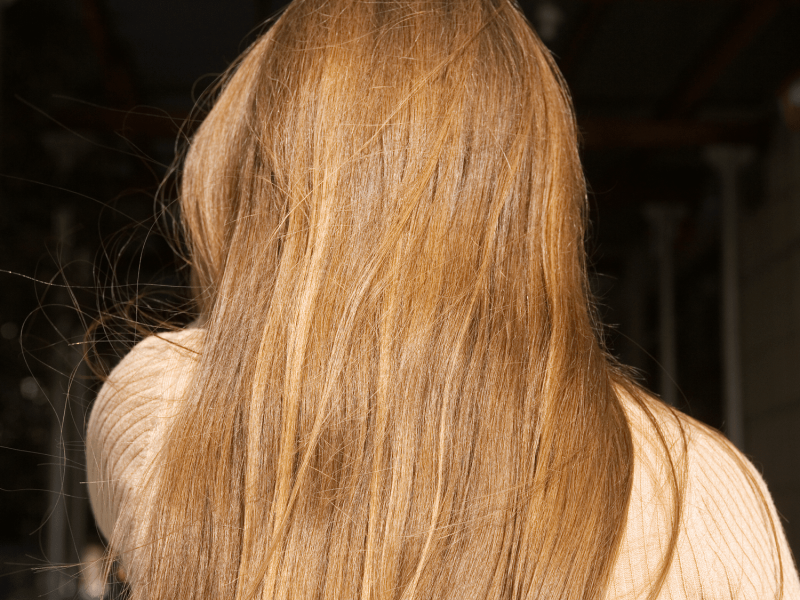Contents
For what seems like forever, coconut oil has been touted as the ultimate hair-and-scalp treatment. On TikTok alone, the term “coconut oil for hair” has over 33 million views and counting. Recently, however, both hair stylists and trichologists have been sharing that cedarwood oil may have more scalp-specific benefits, and therefore could be extremely beneficial to hair health and growth. The positive effects of cedarwood oil for hair include impressive oil-balancing characteristics, which make it ideal for those with a constantly greasy scalp as well as those with fine or thinning hair.
Meet the expert
- Gretchen Friese is a hairstylist and trichologist for BosleyMD. Philip B. is the founder of Philip B. hair care. Ayana Johnson is a hairstylist at Luvme Hair.
The pros also point out that cedarwood oil may have hair-growth benefits because of its stimulating powers. Of course, that also means it may be overstimulating for those with sensitive skin or scalp and should be used accordingly. That’s why we've created this carefully curated guide to using cedarwood oil. Here, we share intel from experts around why it may be a truly transformative ingredient when it comes to stellar scalp health and healthy hair growth. Read on to find out more about cedarwood oil for hair.
What is Cedarwood Oil?
“Cedarwood oil is an essential oil produced from the foliage and sometimes the wood, roots and stumps that are left after logging of the trees,” Friese explains. Philip B. points out that the unique oil is often laced into perfumes because of its olfactory benefits. “It has a warm, woody aroma and is known for its various therapeutic properties,” he says. According to Johnson, cedarwood oil is extracted “most extensively from the North American cedar trees of Virginia." This is why, although it can be listed as cedarwood oil on the label, you may also notice it listed as its scientific name, which is Juniperus Virginiana, also known as the eastern red cedar.
Benefits of Cedarwood Oil for Hair

“Cedarwood oil offers several benefits for hair health,” says Philip B. One of the standouts is its rebalancing properties when it comes to both the scalp and hair. “Cedarwood oil is known to cleanse the scalp, reduce excess oil, sebum, dirt, and dandruff, and as a result, it helps restore oil balance to slow down hair loss,” notes Johnson. All that then leads to the next noteworthy and buzzworthy attribute of cedarwood oil: its ability to potentially stimulate hair growth.
“Cedarwood oil has been proven to help enhance blood circulation to the scalp and tighten the follicles,” Johnson says. “It also contains calming and anti-bacterial properties, which can help the scalp maintain an overall healthy, growth-friendly status, especially for oily scalp.” The bottom line, notes Friese, is that because of the cleansing, rebalancing, antibacterial ,and anti-fungal properties of cedarwood oil, it can help improve the condition of your scalp and maintain a healthy head of hair.
Philip B. is especially pro-cedarwood oil because it has the ability to promote a healthy scalp environment — specifically with its antibacterial and anti-fungal properties. “Because of these, it can help to prevent dandruff and other scalp conditions,” he explains. “It also has a stimulating effect on the hair follicles, which may promote hair growth and strengthen the hair shaft.”
How to Use Cedarwood Oil for Hair
For an easy, no-mess cedarwood oil treatment, Friese recommends you “simply add a few drops of the mixture directly to your shampoo and conditioner and it may promote hair growth.” For a concentrated cedarwood-oil treatment, Johnson suggests blending it with a carrier oil such as coconut oil, jojoba oil, or grapeseed oil. “To make your own growth-friendly hair oil, blend four drops of cedarwood essential oil with three drops of rosemary essential oil, plus two drops of lavender essential oil and one drop of ginger essential oil. Then add a half ounce of a carrier oil such as coconut oil or a half and half jojoba and grapeseed oil blend,” Johnson shares.
She says applying it evenly to half-damp and half-dry hair will enhance penetration. Always focus on massaging some of it into the scalp, especially in areas where thinning is an issue. Finish by combing it through all strands evenly. Leave it on for approximately 30 minutes, then shampoo and rinse. If hair growth and thinning are primary concerns, repeat this treatment up to two times a week. “This oil mixture can be left on hair overnight for an in-depth strengthening treatment,” Johnson adds. “However, use a cotton bud or finger to apply a smaller amount to the scalp and massage it well into the scalp to avoid excess greasiness.”
Products with Cedarwood Oil

When to Avoid Cedarwood Oil for Hair
“Cedarwood oil is generally recognized as safe by the Environmental Protection Agency or the EPA,” says Friese. “But if you’re allergic to cedarwood or cedarwood oil in any capacity, you should not use it.” If allergies are not an issue, Friese says that all hair types can potentially benefit from cedarwood oil. However, you should take specific steps and precautions to get the most out of it, especially if you have an oily scalp.
“If you have fine hair, you want to especially be careful to rinse it out completely as the carrier oils can cause the hair to become greasy,” Friese explains. Johnson recommends not using pure cedarwood oil directly on the scalp: “It’s best to dilute cedarwood oil with a carrier oil, as pure cedarwood essential oil may be too strong for sensitive scalp and skin,” she explains.
To navigate any unknown allergies to cedarwood oil, Philip B. has this pro tip: “Although cedarwood oil is generally safe for all hair types, if you have sensitive skin, you may want to perform a patch test before using it, as it can cause irritation in some cases,” he explains. “It's important to use cedarwood oil responsibly and in moderation, as excessive use may cause skin irritation or sensitization.”
Frequently Asked Questions
- Is cedarwood oil good for your hair?
Yes, it is good for your hair, if used properly. “It can reduce excess oil, sebum and dirt on hair,” Johnson says. “Plus, cedarwood oil has antibacterial properties so it can also help maintain a balanced state for hair.”
Can I leave cedarwood oil in my hair overnight?
According to Philip B., the simple answer is yes. “You can leave cedarwood oil treatment in your hair overnight for a deep conditioning,” he says. “Simply massage a small amount into your scalp and hair, focusing on the roots and leave it on overnight, then in the morning, shampoo and condition your hair as usual.” Note: you may want to use an extra pillowcase or protect your bedding with a towel.
Is cedarwood oil good for hair growth?
According to one study, cedarwood oil was useful for treating alopecia, a hair-loss condition. “It can also be used for stress relief and relaxation, which can help for people experiencing stress-related hair loss,” notes Friese. Johnson recommends a combination of cedarwood oil, rosemary oil, and coconut oil to help strengthen hair.
